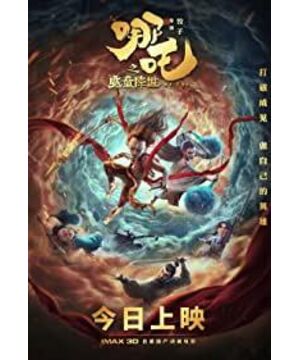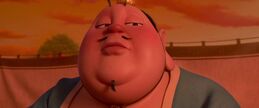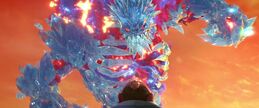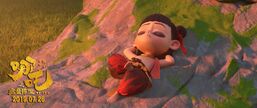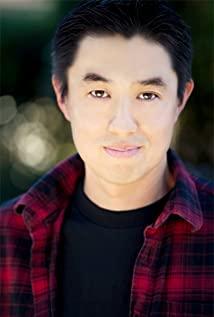In the summer of 2019, the movie "Nezha's Devil Child Comes into the World" revitalized the entire domestic animation film market. The background of this film is set in the fictional world of Fengshen, and it tells the story of a young Nezha who changed his life against the sky. The visual special effects and moving story details that are not inferior to Hollywood are the external charm of "The Devil's Child of Nezha", and the inner charm of the film is that it carries rich cultural connotations in the narrative. Director Dumpling perfectly integrates Chinese local religious culture, family education concept and life philosophy into the video narrative, presenting a visual feast full of dry goods to the audience. 1. Taoist culture - the enhanced Chinese symbol "Nezha's Devil Child Comes into the World" reflects the ancient Chinese Taoist culture and reinterprets it in a modern sense. Taoism believes that the world can be divided into two worlds, heaven and man, and the hierarchy system is emphasized. In the film, Yuanshi Tianzun ordered Taiyi Zhenren to accept the mission of educating Lingzhu to become a talent after subduing the refining and refining Hunyuanzhu. He is also a disciple of Yuanshi Tianzun, but he also has an insurmountable hierarchy. Shen Gongbao, who has been trained by Taiyi Zhenren and Leopard Jing, will always belong to the human world no matter how powerful his mana is, if he can't get the Golden Immortal seat, Shen Gongbao can fight against Taiyi Zhenren and compete for the last Golden Immortal seat, but Shen Gongbao never thought about it. After confronting Yuanshi Tianzun, because Yuanshi Tianzun is the most honorable existence even in the heaven, Shen Gongbao only has awe in his heart, and all he wants is to prove to Yuanshi Tianzun that he is more qualified to become a golden immortal than Taiyi real person. Doing nothing and letting things go naturally is the basic guiding ideology of Taoism. The basic contradiction that Taoism deals with is the contradiction between man and heaven. In the film, Nezha is the reincarnation of the magic pill. From the perspective of Taoist culture, Nezha's birth violated the way of heaven and should be punished by Tianlei. Therefore, when Li Jing asked Yuanshi Tianzun for help, Yuanshi Tianzun avoided it; when Shen Gongbao was a disaster for the world, Yuanshi Tianzun did not appear; when Ao Bing wanted to be buried alive in Chentangguan, Yuanshi Tianzun was still free from the world. Yuanshi Tianzun has only completed what he should do as a "Heaven", leading the thunder to destroy the magic pill. will start. What Tianlei wants to destroy is the magic pill. If Li Jing's son Nezha is really destroyed by Tianlei, then Ao Bing, the reincarnated Lingzhu, will naturally take over the responsibility that Nezha should have assumed in the great cause of conferring gods. This is the so-called reincarnation of heaven. Second, the double-edged sword of Chinese family education concept What the film reflects is a typical Chinese family view, that is, the value concept of teaching by words and deeds. A major feature of the Chinese concept of family education is that the Chinese give their children a standard code of conduct. Because Chinese people pay attention to teaching by words and deeds, and hope to use their own behavior to influence children, they always like to guide, intervene, stop, and admonish children. Nezha in the film represents the experience of Chinese children to a large extent. Nezha always likes to make fun of others. This is actually because of Nezha's inner loneliness. He wants to have a friend but doesn't know how to deal with people who are afraid of him. He can only fulfill his emotional appeal by playing tricks on those children. In the face of such Nezha, what Li Jing gave was not guidance and care, but imprisonment. Li Jing is a typical example of silent father's love. Such a father can die for Nezha, but he cannot communicate emotionally with his son. He can only stop Nezha in time when he goes the wrong way, and force Nezha to follow the path he planned. He taught Nezha that my fate is in my hands, that I have to decide my own destiny, but there is not enough time to guide Nezha how to live out himself. Mrs. Yin, who is opposite to Yan's father, is undoubtedly a model of loving mother. She used her body to protect Nezha when Nezha was about to be killed by the Taiyi real person. Also, take time to play shuttlecock with Nezha. But she forgot that children need not only companionship but also guidance, and even simple companionship she often fails to do. Because she herself has to take responsibility as the chief soldier's wife. Chinese people pay attention to teaching by words and deeds, but they generally fail to teach children by words and deeds. When children grow up, they will become more independent and find their favorite lifestyle and aesthetic habits. If parents are unwilling to withdraw from their children's life and leave their children to schools and society for re-education, they must be able to have enough time and energy to grow up with their children. Otherwise, there is a great possibility that the child will go into detours or even go astray because of rebellious psychology, which most parents in China cannot do. Another major feature of the Chinese educational concept is that it has too high expectations for children, and too high expectations is equivalent to putting pressure in disguised form. Ao Bing in the play can be said to be "the hope of the whole village". From the moment he was born, he carried the mission of revitalizing the dragon family, and there must be no slack in studying spells. It is good to have expectations for children, but expectations can make or break a child. Chinese-style parents always expect their children to live better than themselves, to do what they have never done, and to accomplish their unfinished goals. The parent's saying "don't let the child lose at the starting line" will make the child bear a burden that should not be carried at this age. It is true that there is pressure to be motivated, but when there is an avalanche, no snowflake is innocent. When the child is overwhelmed by the burdens piled on the shoulders, all the parents’ usual “I am for you” behavior will change. guilty. Under the guidance of his master Shen Gongbao, Ao Bing has indeed achieved extraordinary achievements, and he is proficient in various spells at a young age. And he is only a child under three years old, he has no time to socialize, he has no time to entertain, and his childhood is destined to be sad. And when Ao Bing met Nezha and Nezha, who had the same fate and sympathy for each other, it was a great blessing in Ao Bing's life. Later, he found out that Nezha was the biggest obstacle to his realization of "the hope of the whole village". He had to kill his only friend, because only in this way would he have the chance to be recognized by Yuanshi Tianzun as a real spiritual bead reincarnation and lead the dragon race to the heavenly realm. Before leaving, all the members of the Dragon Clan gave Ao Bing the hardest dragon scales on their bodies to make Wanlong Armor. This is the love of the family and the shackles imposed by the family. As their only hope, Ao Bing must end his difficult friendship with his own hands. Ao Bing is indeed talented and powerful, but such a talent is undoubtedly pathetic. Children are the continuation of their parents' lives. It is understandable to have expectations for children, but children are definitely not tools for parents to realize their uncompetitive ideals. 3. The philosophy of life that man must conquer heaven The movie "Nezha's Devil Child Comes into the World" shows the audience the great power of friendship, trust and justice based on the exchange crisis of Lingzhu and magic pills. Nezha, who was reincarnated by the magic pill, will eventually turn into nothingness with the arrival of Tianlei. Through irreversible fatalism, the film throws out the proposition of abandonment and self-salvation. With the help of Nezha's fate, it implies that life is like a white horse, and it is necessary to seize the opportunity to live. from my own value orientation. In the film, Nezha was replaced by Shen Gongbao as a Lingzhu and became the reincarnation of the magic pill. Nezha's hesitation in the face of the prejudice of the people in Chentangguan also aroused confusion in everyone's heart. If a person is scorned and rejected by the world from birth, what will this person do? This is just like the original sin theory put forward by some Christian theologians. Nezha was born with sin, and he must make atonement the day after tomorrow, but even if the atonement is made, the thunder will still arrive as scheduled, and he is destined to be an abandoned son abandoned by fate. In Chinese films, rescue must be related to "heroes". "Heroes" are often people who jump out of the Three Realms like Yuanshi Tianzun, but can turn the tide at critical moments. Those who are rescued are generally like Nezha. A poor man with the chains of fate on his back. But in "The Devil Child of Nezha Comes into the World", this situation has changed, although Nezha also has external rescues, such as the life-changing charm brought by his father Li Jing, and the ten thousand dragon armor donated by his friend Ao Bing. But in the end, it was Nezha himself who completed the fate-defying change. He liberated himself spiritually, and made the value choice of my destiny. Even if he is inevitably annihilated by the thunder, he has to return to Chentangguan to rescue his parents, masters and people. This is the sublimation of human nature. . During this period of struggle and wandering, Nezha had already learned of his fate in Shen Gongbao's place. He cannot grow up as healthy and happy as another child. But he had to carry his life on his own, and he couldn't drag his father down. Rather than self-exile to escape reality, it would be better to fight the so-called heavenly way of this abominable fate to the end. The plot at the end of the film is very ingenious. Nezha completed his life-defying change with the joint efforts of himself, Ao Bing, Taiyi and others, which prevented the film's value orientation from slipping to Hollywood-style personal heroism. The movie "Nezha's Devil Child Comes into the World" ended with a happy ending, which not only responded to the Chinese people's beautiful pursuit of a happy story, but also an encouragement from the director Dumpling to people who are in the mud in the real society. Under the creative framework of cartoons, the film ingeniously embeds the cultural narrative in it, and then achieves a double harvest of commercial and social benefits. This is not accidental, but inevitable. The movie "Nezha's Devil Child Comes into the World" ended with a happy ending, which not only responded to the Chinese people's beautiful pursuit of a happy story, but also an encouragement from the director Dumpling to people who are in the mud in the real society. Under the creative framework of cartoons, the film ingeniously embeds the cultural narrative in it, and then achieves a double harvest of commercial and social benefits. This is not accidental, but inevitable. The movie "Nezha's Devil Child Comes into the World" ended with a happy ending, which not only responded to the Chinese people's beautiful pursuit of a happy story, but also an encouragement from the director Dumpling to people who are in the mud in the real society. Under the creative framework of cartoons, the film ingeniously embeds the cultural narrative in it, and then achieves a double harvest of commercial and social benefits. This is not accidental, but inevitable. In Chinese films, rescue must be related to "heroes". "Heroes" are often people who jump out of the Three Realms like Yuanshi Tianzun, but can turn the tide at critical moments. Those who are rescued are generally like Nezha. A poor man with the chains of fate on his back. But in "The Devil Child of Nezha Comes into the World", this situation has changed, although Nezha also has external rescues, such as the life-changing charm brought by his father Li Jing, and the ten thousand dragon armor donated by his friend Ao Bing. But in the end, it was Nezha himself who completed the fate-defying change. He liberated himself spiritually, and made the value choice of my destiny. Even if he is inevitably annihilated by the thunder, he has to return to Chentangguan to rescue his parents, masters and people. This is the sublimation of human nature. . During this period of struggle and wandering, Nezha had already learned of his fate in Shen Gongbao's place. He cannot grow up as healthy and happy as another child. But he had to carry his life on his own, and he couldn't drag his father down. Rather than self-exile to escape reality, it would be better to fight the so-called heavenly way of this abominable fate to the end. The plot at the end of the film is very ingenious. Nezha completed his life-defying change with the joint efforts of himself, Ao Bing, Taiyi and others, which prevented the film's value orientation from slipping to Hollywood-style personal heroism. The movie "Nezha's Devil Child Comes into the World" ended with a happy ending, which not only responded to the Chinese people's beautiful pursuit of a happy story, but also an encouragement from the director Dumpling to people who are in the mud in the real world. Under the creative framework of cartoons, the film ingeniously embeds the cultural narrative in it, and then achieves a double harvest of commercial and social benefits. This is not accidental, but inevitable. In Chinese films, rescue must be related to "heroes". "Heroes" are often people who jump out of the Three Realms like Yuanshi Tianzun but can turn the tide at critical moments. Those who are rescued are usually people like Nezha. A poor man with the chains of fate on his back. But in "The Devil Child of Nezha Comes into the World", this situation has changed, although Nezha also has external rescues, such as the life-changing charm brought by his father Li Jing, and the ten thousand dragon armor donated by his friend Ao Bing. But in the end, it was Nezha himself who completed the fate-defying change. He liberated himself spiritually, and made the value choice of my destiny. Even if he is inevitably annihilated by the thunder, he has to return to Chentangguan to rescue his parents, masters and people. This is the sublimation of human nature. . During this period of struggle and wandering, Nezha had already learned of his fate in Shen Gongbao's place. He cannot grow up as healthy and happy as another child. But he had to carry his life on his own, and he couldn't drag his father down. Rather than self-exile to escape reality, it would be better to fight the so-called heavenly way of this abominable fate to the end. The plot at the end of the film is very ingenious. Nezha completed his life-defying change with the joint efforts of himself, Ao Bing, Taiyi and others, which prevented the film's value orientation from slipping to Hollywood-style personal heroism. The movie "Nezha's Devil Child Comes into the World" ended with a happy ending, which not only responded to the Chinese people's beautiful pursuit of a happy story, but also an encouragement from the director Dumpling to people who are in the mud in the real society. Under the creative framework of cartoons, the film ingeniously embeds the cultural narrative in it, and then achieves a double harvest of commercial and social benefits. This is not accidental, but inevitable. The movie "Nezha's Devil Child Comes into the World" ended with a happy ending, which not only responded to the Chinese people's beautiful pursuit of a happy story, but also an encouragement from the director Dumpling to people who are in the mud in the real society. Under the creative framework of cartoons, the film ingeniously embeds the cultural narrative in it, and then achieves a double harvest of commercial and social benefits. This is not accidental, but inevitable. The movie "Nezha's Devil Child Comes into the World" ended with a happy ending, which not only responded to the Chinese people's beautiful pursuit of a happy story, but also an encouragement from the director Dumpling to people who are in the mud in the real society. Under the creative framework of cartoons, the film ingeniously embeds the cultural narrative in it, and then achieves a double harvest of commercial and social benefits. This is not accidental, but inevitable.
View more about Ne Zha reviews


